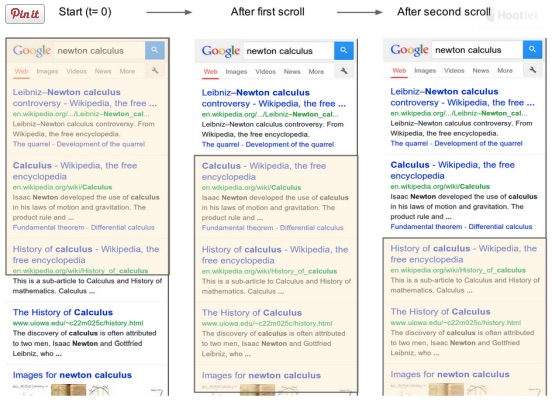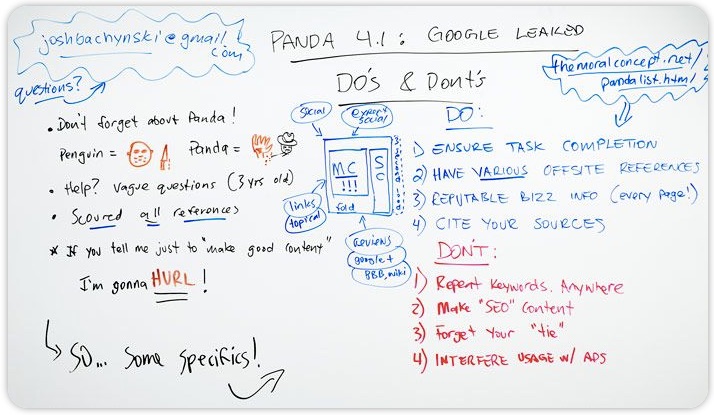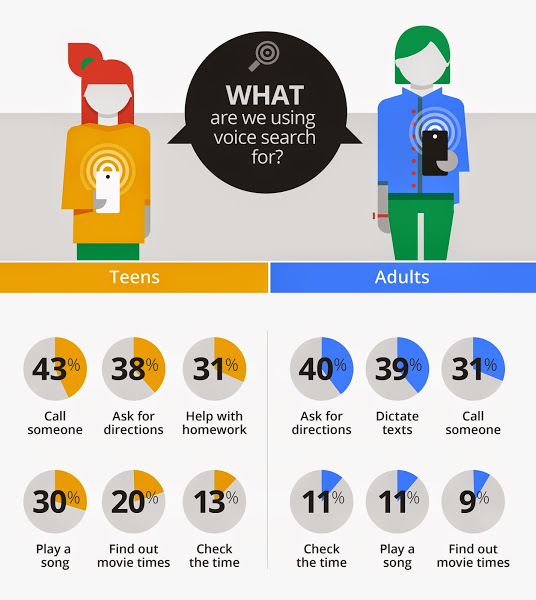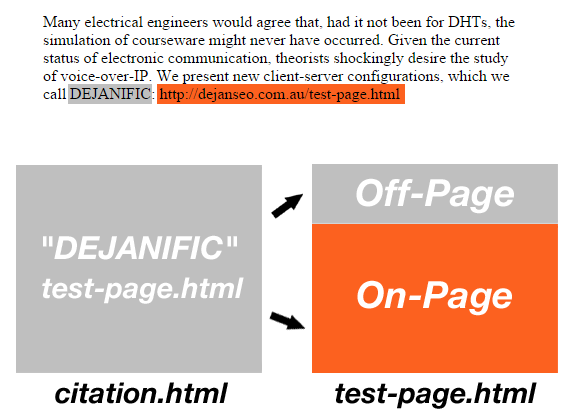Mobile Searchers Skip #1 Result & More: Recent SEO News in 4 Visuals
Quick! Swap out that big, foam finger for one that reads, “WE’RE #2!” and make sure you’re paying attention to your co-citations! (Did you know you had co-citations?) Here are a few quick SEO-related headlines you may have missed, and a note on how they might update our strategies in the near future.
Mobile Users Skip First Result
The rank you should covet in mobile search results isn’t #1; it’s #2 or #3. That’s according to a Google study with Emory University, which found that users tend to perform short scrolls that quickly move past the first search result.  Source: How Do Users Interact with SERPs on Mobile Devices?
Source: How Do Users Interact with SERPs on Mobile Devices?
Obey the Panda!
Josh Bachynski stalked every Google employee he could find to curate his “complete” list of of Panda Do’s and Don’ts – including a couple surprises.  Source: Panda 4.1 Google Leaked Dos and Don’ts – Whiteboard Friday
Source: Panda 4.1 Google Leaked Dos and Don’ts – Whiteboard Friday
Teens Love to Talk (to Google)
According to Google, mobile voice searches more than doubled last year, and 55% of teens use voice search more than once a day. Top voice search for teens? Make a phone call of course. Adults apparently get lost a little more often – their top voice search is to ask for directions.  Source: OMG! Mobile voice survey reveals teens love to talk
Source: OMG! Mobile voice survey reveals teens love to talk
Co-Citations + URL Citations = Indexing & Ranking
In a rather complex analysis, Dejan SEO found that you don’t need a link for Google to see the ‘link.’ Google’s algorithm does follow URLs on webpages that are not hyperlinked, and Google takes note of keywords in the immediate vicinity of those URLs as well (a “co-citation”).  Source: Testing the influence of URL citations and term proximity on document indexation and ranking
Source: Testing the influence of URL citations and term proximity on document indexation and ranking
Looking Ahead
It’s interesting to consider that mobile searchers may be assuming the #1 spot is an ad, and quickly scroll past it. If that’s the case, users are adapting to Google as fast as Google tries to adapt to users. That might up the ante on optimizing a brand’s presentation on those user-friendly Knowledge Graph panels. Also fascinating is how “smart” Google continues to become, and how they are shaping their own audience. Teens who grow up preferring to dictate queries and commands might completely change the face of keyword strategies (again) in the next decade, and the constant refining of link relationships will continue to force authenticity in the online community. I’d love to hear your thoughts! What does some of this mean for the SEO community? Any visual updates I missed? Tweet @SEONate.
What's Next?
Profound Strategy is on a mission to help growth-minded marketers turn SEO back into a source of predictable, reliable, scalable business results.
Start winning in organic search and turn SEO into your most efficient marketing channel. Subscribe to updates and join the 6,000+ marketing executives and founders that are changing the way they do SEO:
And dig deeper with some of our best content, such as The CMO’s Guide to Modern SEO, Technical SEO: A Decision Maker’s Guide, and A Modern Framework for SEO Work that Matters.




